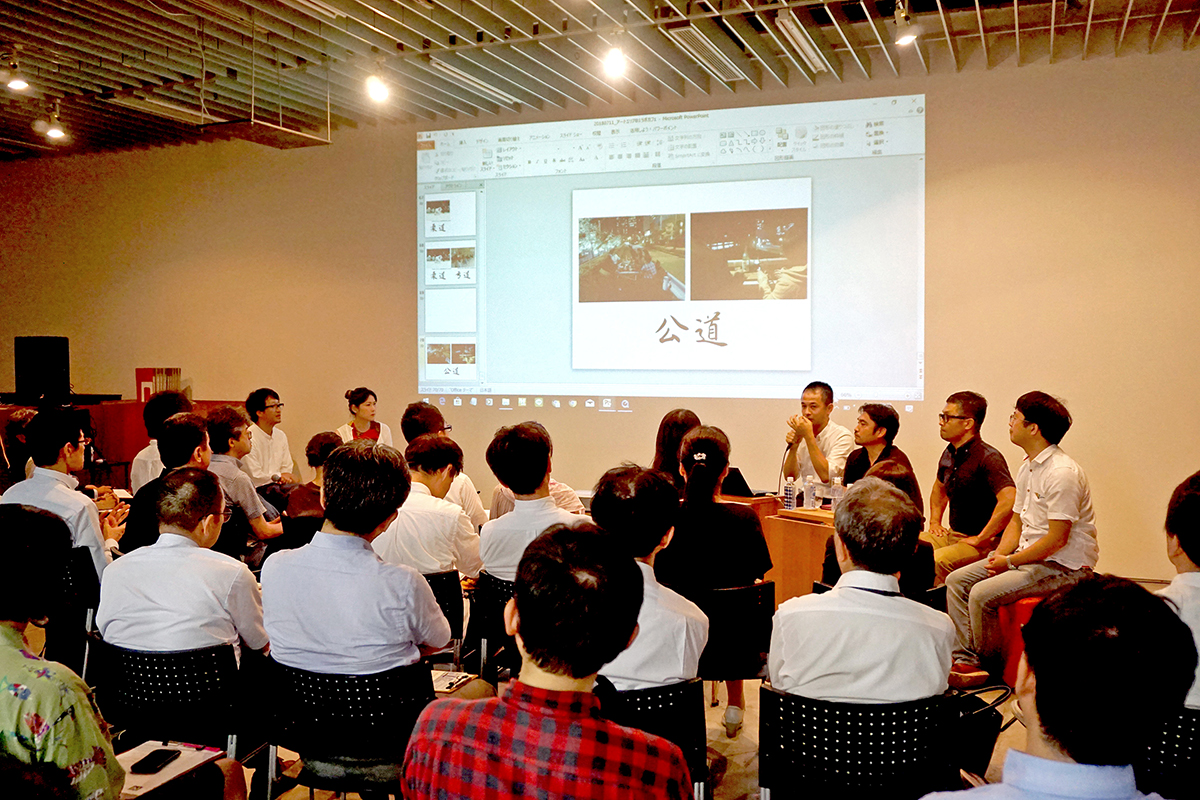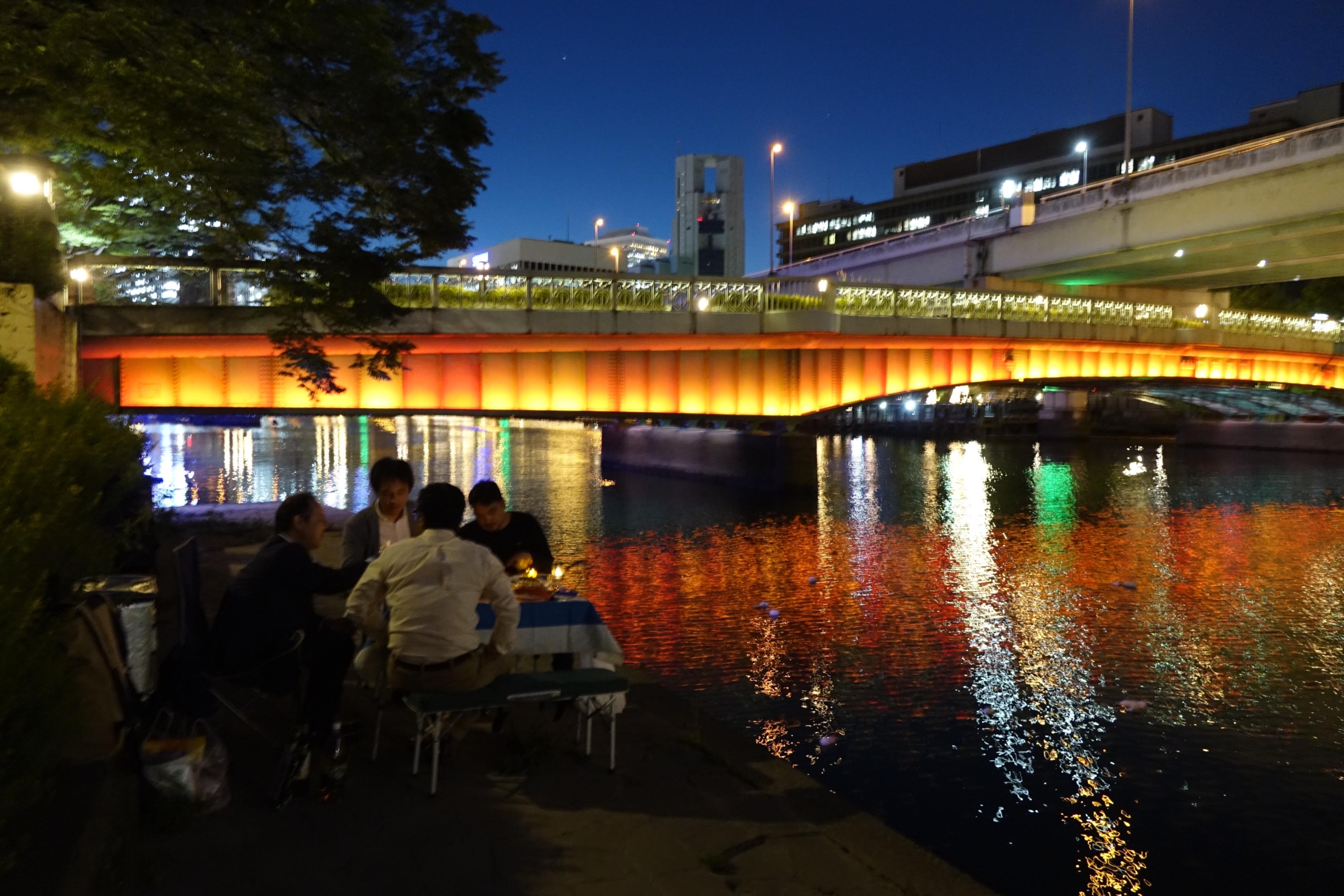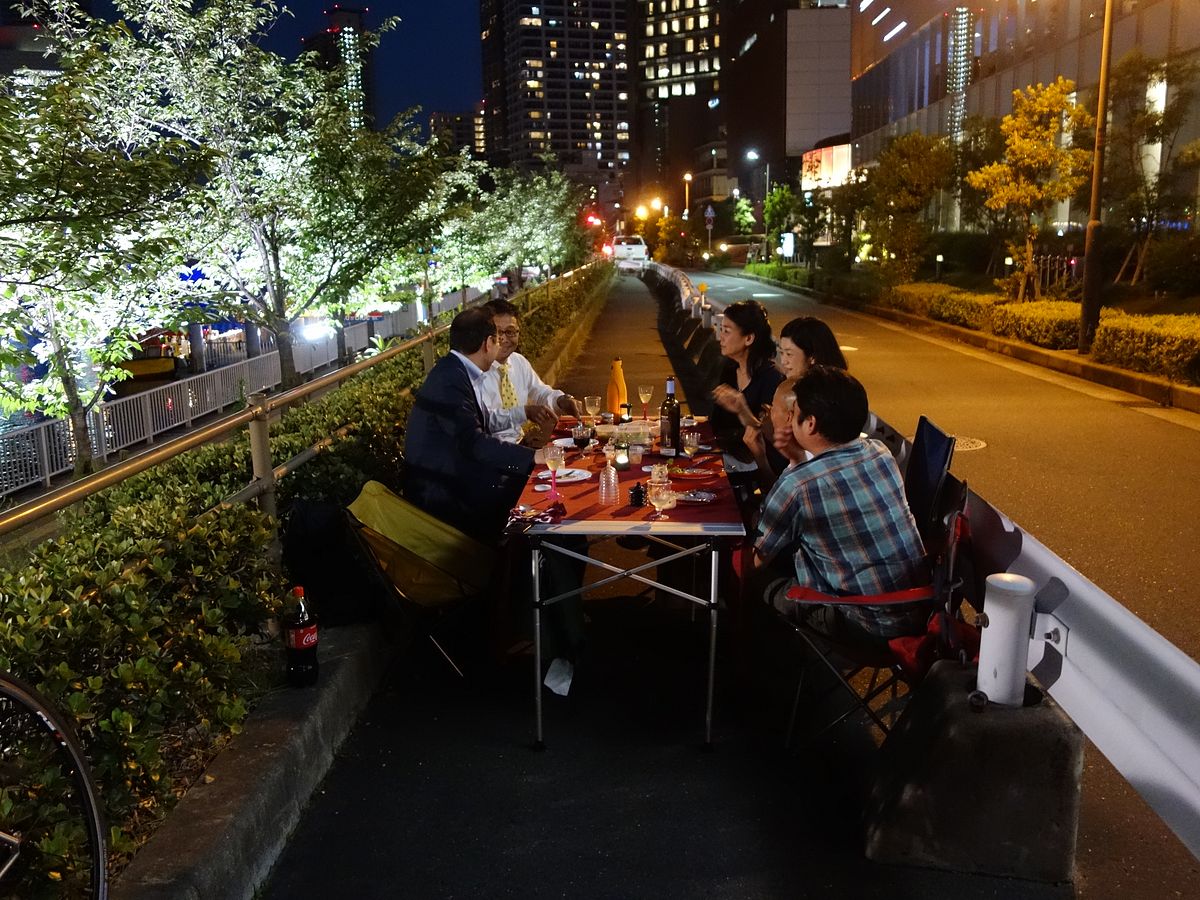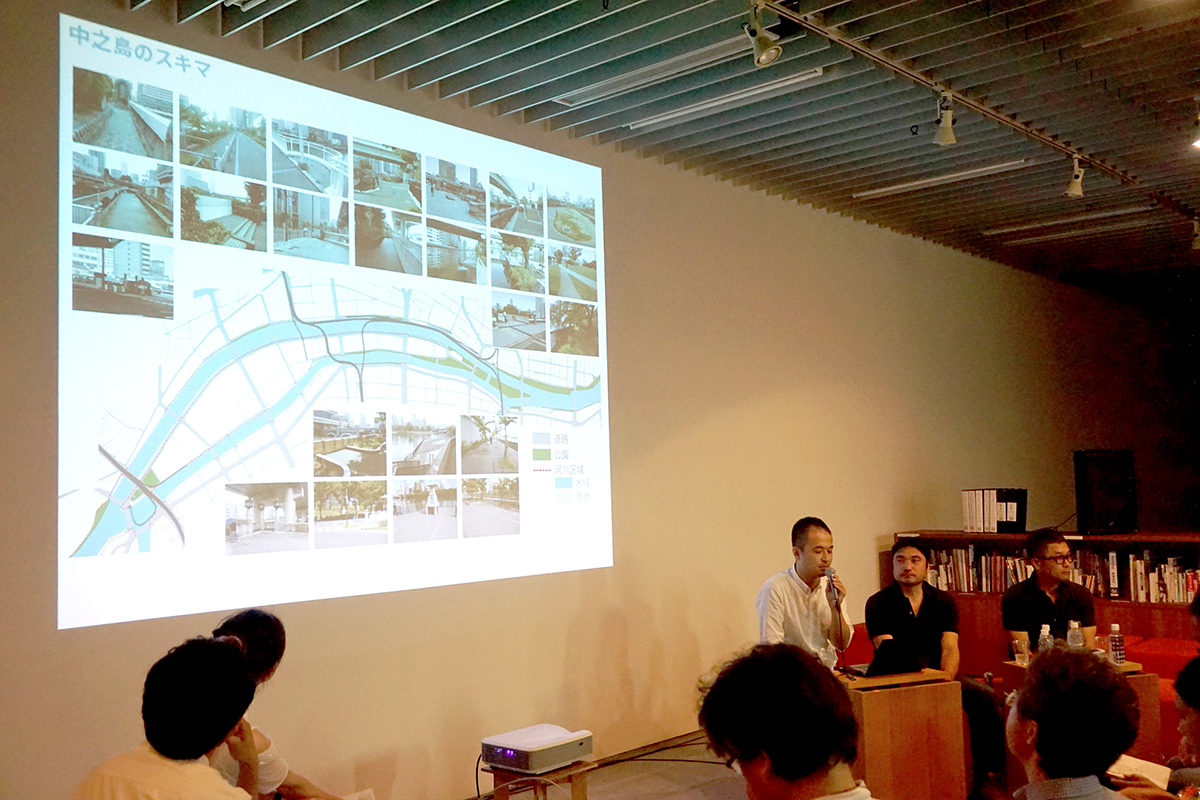Waterside Town Restoration Project
Lab Cafe Special featuring Creative Island Lab Nakanoshima 01
Recommendation for free use of the waterside - No BORDER, BE WILD.
Date and time: Wednesday, July 11, 2018 19:00-21:00
Venue: Art Area B1
Participation fee: Free
Guest: Takumi Suemura, Atsushi Kuroda, Kazuhiro Sasao, Soto Nakatsu (Waterside Town Restoration Project)
Cafe Master: Chieko Kinoshita, Tetsu Kubota (Art Area B1 Steering Committee member)
Occupy the water well
On July 11, 2018, a public event was held as the first stage of Creative Island Lab Nakanoshima, which explores the cultural and historical possibilities of Nakanoshima.

Mr. Takumi Suemura, Mr. Atsushi Kuroda, Mr. Kazuhiro Sasao, and Mr. Soto Nakatsu were invited from the "Waterside Town Revitalization Project". The project was launched in 2003 as an attempt to make the most of the rivers and waterfronts that symbolize Nakanoshima and make life interesting.
Today, it is the riverside of Nakanoshima, where cafes and shops are lined up, but in 2003, there were not many people paying attention as it is now, and in the surrounding buildings, there were many vacancy rooms facing the river that was "back" on the road side, so there were many rooms without lighting because it was used as a warehouse. In response to such a situation, the group started with the theme of "I will surely like the waterside."

He has also worked on outdoor movie viewing events and water mobile theaters that resemble Nami, a town seen from the river, but his basic stance is guerrilla activities that do not go through permission or procedures. However, rather than breaking laws and regulations, the motto of the project is to "jack the urban space in a polite and peaceful manner." For example, the waterside diner, which is regularly held, is an activity to find a place like a skimmer that does not interfere with people's traffic and have dinner. In addition, there is an activity called "clamping" where you can enjoy wine and hand-rolled sushi while preparing temporary side tables using wooden boards and clamps that can be purchased at home centers, etc., while loving the scenery of the city of water. It seems that sometimes police and security guards patrolling the surroundings can call out, but the idea of free use of public spaces is also in the government, and it is forbidden or required to be evicted without hesitation It seems that there is little. In fact, “There are people who are doing strange things.……Most people can be called out by a report from a citizen, and if you talk properly, it will be almost transmitted. As a result, in order to prevent unintended clashes with police officers and citizens, the waterside diner places TPO well-known clothes and the dishes on a plate, etc. It is important to see the surroundings as a "decent activity". The four members consider pursuing the potential of such a smart public space as a "public road" that is unique to the tea ceremony and Japanese calligraphy.
How to increase the area of “good things”?
What was the reason why you started this strange activity in the first place? The interests of the four people working in different occupations, such as industrial design, real estate, tourism, and urban development, seem to be different, but what we share is not only to provide passive services, but also to play independently by individuals.

Mr. Nakatsu, who joined the group six months ago, had little freedom in using space in Osaka compared to his hometown of Kagawa Prefecture, and he questioned the difficulty of finding new goals and functions with his own ingenuity. I mentioned it as a reason for participation. In contrast, Mr. Kubota says, "There is communication that is born only in a city," and says that activities such as waterside diners and clamping are the results of searching for ways to live comfortably and happily as a city resident.
In society, it is easy to think that the ratio of "good things" and "don't do things" is higher in the latter, but it seems that the line of legal judgment is not so. However, at the same time, the delineation of NG is not clear, and it is a way of society where diverse people live. If we want to change the ratio of gradients of "good things" and "don't do things", many people say, "This may be good. We believe that it is important to create an atmosphere that makes you feel like a little bit scary, and we are thinking of the waterside town regeneration project.

In a social situation where the area of "don't do it" is gradually increasing, we want to expand the possibilities and social consensus of activities that are "not so difficult but slightly stiff" instead of "breaking the law." Finally, let me introduce Mr. Suemura's comments.
"I don't need to take more than 30 minutes to prepare, but I value the feeling that I want to do it on a daily basis because it's easy and fun. But, like existing music and food events, it's a bit lonely to just enjoy what's given from the outside. I want to bite the consciousness that public space is not your own, but it is also your own. "